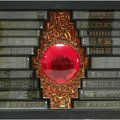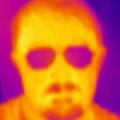-
Hack Chat Transcript, Part 1
06/02/2021 at 20:07 • 1 commentOK, great turnout today and still seeing some logins. Let's get started anyway. Welcome to the Hack Chat after a glorious week off, I'm Dan and I'll be modding today along with Dusan as we welcome Paul Marsh from UHF-Satcom today.
![]() Hello from France guys !
Hello from France guys !![]() Welcome Paul, thanks for coming on with us today
Welcome Paul, thanks for coming on with us today![]() thanks, awesome to be here, 1st time on hack-a-day
thanks, awesome to be here, 1st time on hack-a-day![]() Can you kick us off with a little about yourself and how you got turned on to satellites?
Can you kick us off with a little about yourself and how you got turned on to satellites?![]() certainly can... so I'm Paul, I work in infosec, and have worked in IT since the early 90's
certainly can... so I'm Paul, I work in infosec, and have worked in IT since the early 90's![]() the RF and radio stuff was influenced by my father who was always messing with radios
the RF and radio stuff was influenced by my father who was always messing with radios![]() so spent a lot of time in the 80's and 90's on HF utility listening
so spent a lot of time in the 80's and 90's on HF utility listening![]() then work break / etc and I got back into the hobbies in the 90's with limited space at home, so startted to look back at satellites
then work break / etc and I got back into the hobbies in the 90's with limited space at home, so startted to look back at satellites![]() back then it was inmarsat-A which was FM unencrypted downlinks
back then it was inmarsat-A which was FM unencrypted downlinks![]() of course this got me addicted... and its basically gotten out of hand from those days much to the annoyance of my wife.
of course this got me addicted... and its basically gotten out of hand from those days much to the annoyance of my wife.![]() I imagine your home fairly bristles with antennas and dishes...
I imagine your home fairly bristles with antennas and dishes...![]() so now i've moved on from the single 90cm offset I had for inmarsat to a selection of tracking antennas covering VHF upto 40GHz
so now i've moved on from the single 90cm offset I had for inmarsat to a selection of tracking antennas covering VHF upto 40GHz![]() yes currently here is a tracking 90cm for Ku
yes currently here is a tracking 90cm for Ku![]() Kilo Six Echo Alpha Uniform, monitoring form Oakland California, mostly on 2 meters, and some 70cm, and experimenting with Millimeter wave 60 GHz
Kilo Six Echo Alpha Uniform, monitoring form Oakland California, mostly on 2 meters, and some 70cm, and experimenting with Millimeter wave 60 GHz![]() Hello everyone! I know nothing about sattelites communication! Anyone with good links about it or me to learn from?
Hello everyone! I know nothing about sattelites communication! Anyone with good links about it or me to learn from?![]() a tracking 2.4M for UHF to 10GHz
a tracking 2.4M for UHF to 10GHz![]() a 1.5M offset uplink antenna for QO100
a 1.5M offset uplink antenna for QO100![]() a tracking 88cm for L/S band mostly used for taking telemetry or L-Band weather satellite pics
a tracking 88cm for L/S band mostly used for taking telemetry or L-Band weather satellite pics![]() FYI, if you want to paste in images, use the button right at the bottom of the chat window
FYI, if you want to paste in images, use the button right at the bottom of the chat window![]()
![]() Not sure if that's what you're trying to do, just making sure
Not sure if that's what you're trying to do, just making sure![]() Ah, there we go
Ah, there we go![]() yeah thanks i just sussed it
yeah thanks i just sussed it![]() Are all your antenna dishes or do you have any lens antennae?
Are all your antenna dishes or do you have any lens antennae?![]() So, do you still get unreasonably excited when you spot an old satellite TV dish in someone's yard?
So, do you still get unreasonably excited when you spot an old satellite TV dish in someone's yard?![]() Only one lens antenna, that is only small but is for 40GHz
Only one lens antenna, that is only small but is for 40GHz![]() I run a retirement home for old satellite dishes
I run a retirement home for old satellite dishes![]() so if I see one I will try to collect it
so if I see one I will try to collect it![]() Hi! are they stationary or do they have rotors? I made one of the Satnogs rotors into a raspberry pi hat
Hi! are they stationary or do they have rotors? I made one of the Satnogs rotors into a raspberry pi hat![]() most of the antennas can be moved
most of the antennas can be moved![]() the 2.4m is on a full az/el tracking mount
the 2.4m is on a full az/el tracking mount![]() Hi again Paul, Have you had much success with using say a directed RHCP QFH without a dish?
Hi again Paul, Have you had much success with using say a directed RHCP QFH without a dish?![]()
![]() NOICE
NOICE![]() so this is the 1.8m dish 2.4m with extender petals
so this is the 1.8m dish 2.4m with extender petals![]() and can be pointed to 0.04deg precision which is usable for tracking deep space stuff
and can be pointed to 0.04deg precision which is usable for tracking deep space stuff![]() What's your record for deep space signals?
What's your record for deep space signals?![]()
![]() Ryan, re helicals, yes you can make a long helix, this does work but has no where near as much gain as a short helix feed and a small dish
Ryan, re helicals, yes you can make a long helix, this does work but has no where near as much gain as a short helix feed and a small dish![]() i.e. if you wanted to make a helical for L-Band inmarsat you would need one 2 or 3M long to equal the performance of a 60cm (2ft) dish
i.e. if you wanted to make a helical for L-Band inmarsat you would need one 2 or 3M long to equal the performance of a 60cm (2ft) dish![]()
![]() for deep space, my ODX is cassini at 1.37 billion Km
for deep space, my ODX is cassini at 1.37 billion Km![]() very nice!
very nice!![]() Yeah, that's deep alright...
Yeah, that's deep alright...![]() this was received during a REX (radio experiment) so full power carrier
this was received during a REX (radio experiment) so full power carrier![]() wow, very cool
wow, very cool![]() For you high precision Az/El mount - is that home brew or something off the shelf?
For you high precision Az/El mount - is that home brew or something off the shelf?![]() indeed
indeed![]() Wow Cassini, hats off...
Wow Cassini, hats off...![]() it was a holiday weekend, and really miserable weather and wind but I managed to get the signal, it was actually quite loud I reckon I could have copied it 10dB weaker
it was a holiday weekend, and really miserable weather and wind but I managed to get the signal, it was actually quite loud I reckon I could have copied it 10dB weaker![]() Thanks Paul. Wow that's very impressive!
Thanks Paul. Wow that's very impressive!![]() No fancy setups to reduce your thermal noise?
No fancy setups to reduce your thermal noise?![]() That's over a light-hour away! Nicely done
That's over a light-hour away! Nicely done![]()
![]() The AZ/El started live as an electronic warfare AZ/EL unit for UK navy, and had significant mods
The AZ/El started live as an electronic warfare AZ/EL unit for UK navy, and had significant mods![]() Recently got to help top out a pair of UHF/VHF beams for ISS and Sat contacts
Recently got to help top out a pair of UHF/VHF beams for ISS and Sat contacts![]() there are some pictures of the az/el guts at https://uhf-satcom.com/blog/radamec_blog
there are some pictures of the az/el guts at https://uhf-satcom.com/blog/radamec_blog![]()
![]() that the back yard tower?
that the back yard tower?![]() nice!
nice!![]() (re:tracker) very nice - thanks!
(re:tracker) very nice - thanks!![]() Re thermal noise reduction, the feeds are all optimised on sun noise to ensure the best possible snr
Re thermal noise reduction, the feeds are all optimised on sun noise to ensure the best possible snr![]() hey @morgan that's KJ6CW's tower bolted to the house in Novato (North SF Bay)
hey @morgan that's KJ6CW's tower bolted to the house in Novato (North SF Bay)![]() cool
cool![]() Ref thermal noise, do you have any tips for beginners on how to optimise the feeds as you mentioned?
Ref thermal noise, do you have any tips for beginners on how to optimise the feeds as you mentioned?![]() yes so it needs a tracking system that can accurately point at the sun
yes so it needs a tracking system that can accurately point at the sun![]() Hi Paul. Thanks for presenting today. Was just about to ask about thermal noise but Ryan beat me to it.
Hi Paul. Thanks for presenting today. Was just about to ask about thermal noise but Ryan beat me to it.![]() with an SDR you take the total noise power in a bandwidth and use that to peak the feed position. I typically use about 1.5MHz of b/w for this centred at 8425MHz which is in the middle of the DSN band
with an SDR you take the total noise power in a bandwidth and use that to peak the feed position. I typically use about 1.5MHz of b/w for this centred at 8425MHz which is in the middle of the DSN band![]() so I optimize first the feed wg position for maximum solar noise
so I optimize first the feed wg position for maximum solar noise![]() then add the scalar feed and adjust that for optimal illumination of the reflector, this results in the most noise power in the bandwidth
then add the scalar feed and adjust that for optimal illumination of the reflector, this results in the most noise power in the bandwidth![]() but it does need a good tracking system
but it does need a good tracking system![]()
![]() this is a typical sun noise plot, the track was stopped and you can see the noise drop to background thermal noise
this is a typical sun noise plot, the track was stopped and you can see the noise drop to background thermal noise![]() I notice that you are tuned on 425M, so are using a downconverter too I assume? What does your feed in path look like for these tests? What equipment did you use?
I notice that you are tuned on 425M, so are using a downconverter too I assume? What does your feed in path look like for these tests? What equipment did you use?![]()
![]() you can also use moon noise but of course its a lot lower
you can also use moon noise but of course its a lot lower![]() for the 425MHz yes the converter is dual band, it takes either DSN or milsat, and can be switched, IF is 100-1000MHz
for the 425MHz yes the converter is dual band, it takes either DSN or milsat, and can be switched, IF is 100-1000MHz![]() and RF input is either 7250-7750MHz or 8100-8700MHz, all LO's are locked to a stable GPS locked reference
and RF input is either 7250-7750MHz or 8100-8700MHz, all LO's are locked to a stable GPS locked reference![]() What is/are the most important thing(s) you know now that you wish you had known when you first started with satellite/deep space listening? Assuming there is/are some :-)
What is/are the most important thing(s) you know now that you wish you had known when you first started with satellite/deep space listening? Assuming there is/are some :-)![]()
![]() Sorry for delay, above pic is the guts of the dual band converter
Sorry for delay, above pic is the guts of the dual band converter![]() wow that's some serious plumbing
wow that's some serious plumbing![]() most important thing - well oscillator phase noise cleanliness would be up there, I tried with some poor quality 'brick' LO's first, managed to just about copy a LEO sat beacon
most important thing - well oscillator phase noise cleanliness would be up there, I tried with some poor quality 'brick' LO's first, managed to just about copy a LEO sat beacon![]() once I had the LO sussed the rest falls into place. Also, LNA optimisation, you can basically spend your entire existance tweaking noise figure to the last n'th of a dB
once I had the LO sussed the rest falls into place. Also, LNA optimisation, you can basically spend your entire existance tweaking noise figure to the last n'th of a dB![]() so I usually limit it to a max of 45mins-1hour and at that point it will be good enough, else nothing else ever gets done
so I usually limit it to a max of 45mins-1hour and at that point it will be good enough, else nothing else ever gets done![]() What oscillator stability is "good enough"?
What oscillator stability is "good enough"?![]() ah good question, so the answer is 'it depends'
ah good question, so the answer is 'it depends'![]() Of course! Didn't expect a simple answer :D
Of course! Didn't expect a simple answer :D![]() if you want to do long term averaging of a signal then you will need something that doesnt wobble outside of the fft bin your carrier is in
if you want to do long term averaging of a signal then you will need something that doesnt wobble outside of the fft bin your carrier is in![]() if you just want to look at reasonably strong signals then you can use a cheap GPSDO
if you just want to look at reasonably strong signals then you can use a cheap GPSDO![]()
![]() so this pic shows the different between the trimble thunderbolt GPSDO and a simple GPSDO (the excellent LeoGPS)
so this pic shows the different between the trimble thunderbolt GPSDO and a simple GPSDO (the excellent LeoGPS)![]() Paul with the advent of 5G and the LEO sat networks deployment do you see a significant problem with observations of deep space receptions or are the band separations sufficient?
Paul with the advent of 5G and the LEO sat networks deployment do you see a significant problem with observations of deep space receptions or are the band separations sufficient?![]() the top and bottom are the trimble and the centre is the leoGPS
the top and bottom are the trimble and the centre is the leoGPS![]() the FFT is 500Hz wide and the signal was probably at X or Ka (cant remember)
the FFT is 500Hz wide and the signal was probably at X or Ka (cant remember)![]() re 5G / LEO yes all these use different frequency allocations
re 5G / LEO yes all these use different frequency allocations![]() deep space has dedicated bands at 2.2GHz, 8.4GHz and 32GHz, with 26GHz being for close space
deep space has dedicated bands at 2.2GHz, 8.4GHz and 32GHz, with 26GHz being for close space![]() most of the big LEO deployments like starlink use Ku / Ka in the existing bands so these shouldnt cause interference really
most of the big LEO deployments like starlink use Ku / Ka in the existing bands so these shouldnt cause interference really![]() I've not yet looked at the starlink terminal but have one on its way
I've not yet looked at the starlink terminal but have one on its way![]() What sort of reception is at the 40GHz end of your equipment..
What sort of reception is at the 40GHz end of your equipment..![]() These signals (Starlink, etc...) will be ubiquitous and relatively strong. Can they be leveraged as some references, or sources for passive radar, or any other fun?
These signals (Starlink, etc...) will be ubiquitous and relatively strong. Can they be leveraged as some references, or sources for passive radar, or any other fun?![]()
![]() The image shows the 39.4GHz downconverter
The image shows the 39.4GHz downconverter![]() it is based on some parts from a commercial 38GHz microwave link, an old MVDS prototype module and a lens antenna, even though the lens antenna is only small 20-25cm diameter, the beamwidth is only a couple of degrees
it is based on some parts from a commercial 38GHz microwave link, an old MVDS prototype module and a lens antenna, even though the lens antenna is only small 20-25cm diameter, the beamwidth is only a couple of degrees![]() there is only one downlink which is a propagation beacon from alphasat
there is only one downlink which is a propagation beacon from alphasat![]() the converter uses a PLL running at 1.11111' GHz locked to 10MHz
the converter uses a PLL running at 1.11111' GHz locked to 10MHz![]() this is X36 in the converter to give 40GHz, high side mixed with the incoming 39.4G signal to give 600MHz IF
this is X36 in the converter to give 40GHz, high side mixed with the incoming 39.4G signal to give 600MHz IF![]()
![]() typical signal, showsn in 20KHz b/w, the slight wobble is the onboard LO
typical signal, showsn in 20KHz b/w, the slight wobble is the onboard LO![]() at the time I didnt have any test kit covering 40GHz so it was built by guess-work
at the time I didnt have any test kit covering 40GHz so it was built by guess-work![]() You show the GPSDO signals and reference the "simple GPSDO (the excellent LeoGPS)" that signal looks a bit wobbly so is that acceptable or is the thunderbolt the standard.
You show the GPSDO signals and reference the "simple GPSDO (the excellent LeoGPS)" that signal looks a bit wobbly so is that acceptable or is the thunderbolt the standard.kjansky1
![]() so the simple GPSDO uses a GPS module with a low freq locked output, then a simple PLL to generate the output freq. There isnt really any averaging and you see wobble
so the simple GPSDO uses a GPS module with a low freq locked output, then a simple PLL to generate the output freq. There isnt really any averaging and you see wobble![]() the thunderbolt here is my primary reference. its built inside a 'cool box' (the thing you put beer in when going to the beach) since that provides a thermally isolated environment, my timing parms here are a 1 hour long sampling loop and a correction every hour
the thunderbolt here is my primary reference. its built inside a 'cool box' (the thing you put beer in when going to the beach) since that provides a thermally isolated environment, my timing parms here are a 1 hour long sampling loop and a correction every hour![]() so it may shift a few 1/10th's of 1Hz now and then, but overall its pretty much 10.000' MHz output
so it may shift a few 1/10th's of 1Hz now and then, but overall its pretty much 10.000' MHz output![]() also the thunderbolts are nice if you can find them as most are ex telecom (cellular towers) and have been run in for years, so the LO's are well bedded down
also the thunderbolts are nice if you can find them as most are ex telecom (cellular towers) and have been run in for years, so the LO's are well bedded down![]() they do need a good GPS timing antenna mounted high up for best performance.
they do need a good GPS timing antenna mounted high up for best performance.![]() unless you get the one where the Chinese supplier removed the good oscillator and replaced it with an inferior one :(
unless you get the one where the Chinese supplier removed the good oscillator and replaced it with an inferior one :(![]() and the powersupply needs care when designed, i.e. linear PSU, transformer away from the LO etc all the usuall precautions
and the powersupply needs care when designed, i.e. linear PSU, transformer away from the LO etc all the usuall precautions![]() How about the Cesium 10Mhz old cell locked references have you had any luck with those.
How about the Cesium 10Mhz old cell locked references have you had any luck with those.![]() curious about the cassini experiment, please could explain a little bit how was achieved?. what hardware you use?.
curious about the cassini experiment, please could explain a little bit how was achieved?. what hardware you use?.![]() this is true you see quite a few with poor quality oscillators
this is true you see quite a few with poor quality oscillators![]() kjansky: Yes I use a Rb here as my shack secondary reference, its using a ZAZ FLL board to lock it to GPS and is excellent. I've not seen a Cs standard at a reasonable price, I only know one person that has one within 50miles of me...
kjansky: Yes I use a Rb here as my shack secondary reference, its using a ZAZ FLL board to lock it to GPS and is excellent. I've not seen a Cs standard at a reasonable price, I only know one person that has one within 50miles of me...![]() ( 4:45am Chris Lott in South Korea overslept )
( 4:45am Chris Lott in South Korea overslept )![]() Yes thanks I meant rubidium.
Yes thanks I meant rubidium.![]() julian: re cassini yes the challenge was to receive it on a small dish 6 to 8ft. The NASA DAN guys in AUS are really helpful and provided timings of the REX, so the amateur-DSN community all attempted reception during this time.
julian: re cassini yes the challenge was to receive it on a small dish 6 to 8ft. The NASA DAN guys in AUS are really helpful and provided timings of the REX, so the amateur-DSN community all attempted reception during this time.![]() It was very interesting because you could see gaps in the downlink signals as the spacecraft flew behind the rings / lumps of rock etc
It was very interesting because you could see gaps in the downlink signals as the spacecraft flew behind the rings / lumps of rock etc![]()
![]() so even small antennas could detect this
so even small antennas could detect this![]() GPSDO better for long-term drift with less immediate accuracy, Rb for short-term accuracy, worse long-term drift
GPSDO better for long-term drift with less immediate accuracy, Rb for short-term accuracy, worse long-term drift![]() thanks!
thanks!![]() so my Rb here is one of the cheap LPRO101's but steered with the VE2ZAZ freq locked loop boards, its pretty decant when controlled like this
so my Rb here is one of the cheap LPRO101's but steered with the VE2ZAZ freq locked loop boards, its pretty decant when controlled like this![]() What about the Rb phase noise. I have one of these and am planning to use it as the lock for a 8Ghz LO.
What about the Rb phase noise. I have one of these and am planning to use it as the lock for a 8Ghz LO.![]() Are you able to decode and retrieve the information of any of these satellites?
Are you able to decode and retrieve the information of any of these satellites?![]() really you only need decant frequency stability if you are doing weak signal work
really you only need decant frequency stability if you are doing weak signal work![]() for LEO's or GEO's its not really needed
for LEO's or GEO's its not really needed![]() RB PN is pretty good to be honest, it should be fine to lock an LO to @ 8GHz
RB PN is pretty good to be honest, it should be fine to lock an LO to @ 8GHz![]() Do you have a secret source for your hardware bits and pieces ?
Do you have a secret source for your hardware bits and pieces ?![]() my friend over at r00t.cz decoded some of the signals I collected from the chinese tianwen-1 spacecraft and found engineering video https://www.r00t.cz/Sats/Change5
my friend over at r00t.cz decoded some of the signals I collected from the chinese tianwen-1 spacecraft and found engineering video https://www.r00t.cz/Sats/Change5![]() DD1US - yes!
DD1US - yes!![]() At one time you had some equipment available I think it was a set of 8Ghz converter a mixer and 8GHz 10Mhz lock local oscillator. If you come across another lot of such goodies would you still make those available again.
At one time you had some equipment available I think it was a set of 8Ghz converter a mixer and 8GHz 10Mhz lock local oscillator. If you come across another lot of such goodies would you still make those available again.![]()
https://github.com/daniestevez/gr-satellites
daniestevez/gr-satellites
gr-satellites is a GNU Radio out-of-tree module encompassing a collection of telemetry decoders that supports many different Amateur satellites. This open-source project started in 2015 with the goal of providing telemetry decoders for all the satellites that transmit on the Amateur radio bands.
![]() More importantly, do you have a not-secret source that's not eBay :)
More importantly, do you have a not-secret source that's not eBay :)![]() That wasnt me, I do some xband feeds etc but not the downconverters etc
That wasnt me, I do some xband feeds etc but not the downconverters etc![]() for decoding signal from satellites with SDR
for decoding signal from satellites with SDR![]() There are quite a few microwave surplus outlets where you can find for example decant miteq LNA's
There are quite a few microwave surplus outlets where you can find for example decant miteq LNA's![]() Are most of them using “standard” IRIG formats? Or custom?
Are most of them using “standard” IRIG formats? Or custom?![]() Oh yes I saw the Tianwen cam footage on one of Scott Manley's videos, that was a most awesome achivement
Oh yes I saw the Tianwen cam footage on one of Scott Manley's videos, that was a most awesome achivement![]() the downlinks may follow a CCSDS 'standard' but with custom payloads so it needs some analysis
the downlinks may follow a CCSDS 'standard' but with custom payloads so it needs some analysis![]() another masterpiece from r00t is https://www.r00t.cz/Sats/Falcon9 which was the tank video / earth views from the starlink launches - its encrapted now though ;-(
another masterpiece from r00t is https://www.r00t.cz/Sats/Falcon9 which was the tank video / earth views from the starlink launches - its encrapted now though ;-(![]() And then there’s possible encryption, as I heard happened after amateurs decoded TM from a recent SpaceX launch
And then there’s possible encryption, as I heard happened after amateurs decoded TM from a recent SpaceX launch![]() yes, sorry
yes, sorry![]() it is a bit ungentlemanly of space-X to encrypt
it is a bit ungentlemanly of space-X to encrypt![]() @Paul Marsh - very awesome Falcon 9 footage too!
@Paul Marsh - very awesome Falcon 9 footage too!![]() Probably because one of their clients is the US Miltary
Probably because one of their clients is the US Miltary![]() and we could tell immediately on the 1st encrypted mission because the stream on spaceflightnow had issues locking up the video.
and we could tell immediately on the 1st encrypted mission because the stream on spaceflightnow had issues locking up the video.![]() When I started with amateur satellites early 80s the telemetry was still just Morse code
When I started with amateur satellites early 80s the telemetry was still just Morse code![]() Is it possible for the tramission companies, ie Spacex, etc, toprovide a decryption key for one or more launches. Is there even any PKI in place for the key distribution?
Is it possible for the tramission companies, ie Spacex, etc, toprovide a decryption key for one or more launches. Is there even any PKI in place for the key distribution?![]() maybe - this was similar in the shuttle days, the telem could be encrypted but i dont think we ever saw it after monitoring 100's of orbits
maybe - this was similar in the shuttle days, the telem could be encrypted but i dont think we ever saw it after monitoring 100's of orbits![]() I would imagine its an internal PKI or some out of band method shared with partners who downlink the s-band data - maybe the encrapted data is shifted as is to space-x who decode it
I would imagine its an internal PKI or some out of band method shared with partners who downlink the s-band data - maybe the encrapted data is shifted as is to space-x who decode it![]() Seems a waste to shut out all those eyes and ears from receiving the data. Amateurs turn up things that the professionals miss.
Seems a waste to shut out all those eyes and ears from receiving the data. Amateurs turn up things that the professionals miss.![]() Agreed, although I can understand them encrypting missions with military payloads.
Agreed, although I can understand them encrypting missions with military payloads.![]() exactly, it is a pity, we have the data of course but apart from the wrapper with frame counter etc, everything else is binary noise
exactly, it is a pity, we have the data of course but apart from the wrapper with frame counter etc, everything else is binary noise![]() agreed
agreed![]() John, I wondered that too. I get it for private payloads but not so much for the launch vehicle
John, I wondered that too. I get it for private payloads but not so much for the launch vehicle![]() I hate to call an end to the discussion, but here we are at the one-hour mark, and if Paul needs to get going, we'll have to let him. Feel free to keep the conversation going, though -- Hack Chat is always open.
I hate to call an end to the discussion, but here we are at the one-hour mark, and if Paul needs to get going, we'll have to let him. Feel free to keep the conversation going, though -- Hack Chat is always open. I'll just say an official thanks to Paul for his time today, and to everyone for coming on and sharing such great questions. I'll be posting a transcript of the chat in a little bit, in case anyone needs to refer back. Thanks all!
![]() maybe we nee a Russian mafia to decrypt it for us.
maybe we nee a Russian mafia to decrypt it for us.![]() How about the Starlink service, have you subscribed .
How about the Starlink service, have you subscribed .![]() thanks for all the questions - I will be here of course and we have IRC channels in #hearsat and the discord #hearsat both dedicated to satellite monitoring
thanks for all the questions - I will be here of course and we have IRC channels in #hearsat and the discord #hearsat both dedicated to satellite monitoring![]() Thank you, Paul. Much appreciated.
Thank you, Paul. Much appreciated.![]() Rweally awesome presentation. Just I've to exit. Thanks @Paul Marsh - call = M0EYT
Rweally awesome presentation. Just I've to exit. Thanks @Paul Marsh - call = M0EYT![]() kjansky1, waiting for a SL terminal to arrive
kjansky1, waiting for a SL terminal to arrive![]() Most people use Elevation over Azimuth tracking. Have you ever encountered three axis mounts where the antennas are put into the orbital plane and the satellite is then transferred led with only one motor?
Most people use Elevation over Azimuth tracking. Have you ever encountered three axis mounts where the antennas are put into the orbital plane and the satellite is then transferred led with only one motor?![]() Thanks all, and any interested HAM's I'll be hosting a 9am (Pacific Time) talk net tomorrow on N6NFI, 9amtalk.net you can connect via echo link W6REK-R as well 73
Thanks all, and any interested HAM's I'll be hosting a 9am (Pacific Time) talk net tomorrow on N6NFI, 9amtalk.net you can connect via echo link W6REK-R as well 73![]() Hearsat discord : https://discord.gg/cjDagvEh
Hearsat discord : https://discord.gg/cjDagvEh![]() Great chat come back again for a follow-up, thnaks.
Great chat come back again for a follow-up, thnaks.
 Lutetium
Lutetium
 Welcome Paul, thanks for coming on with us today
Welcome Paul, thanks for coming on with us today












